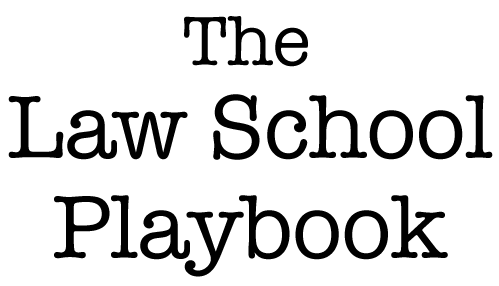Dear Student,
Welcome to The Law School Playbook! I’m Halle Hara, a professor of academic success and personal skills coach to law students and attorneys. I’m glad you’re here! It’s so difficult for me to believe that I started law school almost 25 years ago. There are a lot of things I don’t remember about 25 years ago, but what I do remember well are the many things I didn’t know when I entered law school. Policy was one of those things. None of my professors talked about policy directly, in the sense of explaining what they actually meant when they were talking about it. Instead, policy was just something that came up every once in a while as students responded to questioning under the Socratic method. Well, eventually I figured out that policy is the purpose or reason behind a rule.
Policy-based reasoning is just as important as deductive or inductive reasoning. As Professor Romanz and Professor Vinson have explained:
Policy reflects how the law impacts society and how the law affects the well-being of the community. Because all rules purport to benefit society, policy tends to mirror the values of society. And because a court is more prone to rule in favor of a legal position that might promote the well-being of society and less prone to rule in favor of a legal position that might harm society, a lawyer should demonstrate to the court how policy supports her position.
Policy exists because our rules, whether enacted or derived through case law, are deliberate in the sense that they generally reflect our society’s values as a whole.
As you can imagine, there are many types of policy arguments. Professor Romanz and Professor Vinson categorize them as
judicial administration policy arguments, focusing on the fair administration of justice
normative arguments, focusing on social utility, such as public safety and health concerns
institutional competence arguments, focusing whether a legislature or a court should decide a particular issue
economic arguments, focusing on financial considerations and
fairness and justice arguments, focusing on equity
These categories are similar to those outlined in The Righteous Mind, a book by research psychologist Jonathan Haidt. Haidt’s research revealed that, across societies, there are six general moral foundations, each with a positive and a negative side. These include:
Care/Harm
Fairness/Cheating
Authority/Subversion
Sanctity/Degradation
Loyalty/Betrayal and
Liberty/Oppression
A law student or an attorney can use policy-based reasoning in a number of ways. For example, they might argue that applying a particular rule to a set of facts would create a precedent that benefits society. They could also combine policy-based reasoning with analogical reasoning by explaining that the policy served by the precedent case also applies to the current case. A law student or an attorney might use policy-based reasoning to expand or limit the scope of a particular rule for the benefit of society.
Your job as an attorney is to use policy-based reasoning that supports your client’s desired outcome. You would include this policy when explaining the rule and then apply it to the facts before the court, demonstrating how the policy interest will be served and competing policies will not be undermined by a court’s decision in your favor. Like deductive and inductive reasoning, policy-based reasoning is just another strategy in your playbook that will guide you toward victory.
Thanks for listening. If would you like to read this episode, get suggestions for further reading, or to request individual coaching with me, please visit my website at www.lawschoolplaybook.com.
As always, do your best, and I’ll be rooting for you!
References and Further Reading
Christine Coughlin, et al., A Lawyer Writes: A Practical Guide to Legal Analysis 173–80 (2d ed. 2013).
E. Scott Fruehwald, Think Like a Lawyer: Legal Reasoning for Law Students and Business Professionals (2013).
Jonathan Haidt, The Righteous Mind: Why Good People are Divided by Politics and Religion (2013).
David Romantz & Kathleen E. Vinson, Legal Analysis: The Fundamental Skill, 50–55 (2d ed. 2009).
The Writing Center at GULC by Maureen Aidasani & Osamudia Guobadia, What Do You Mean “There’s More than One Way to Do It”? Selecting Methods of Legal Analysis That Work Best, 2004. https://www.law.georgetown.edu/wp-content/uploads/2018/02/legalanalysismethods.pdf.
